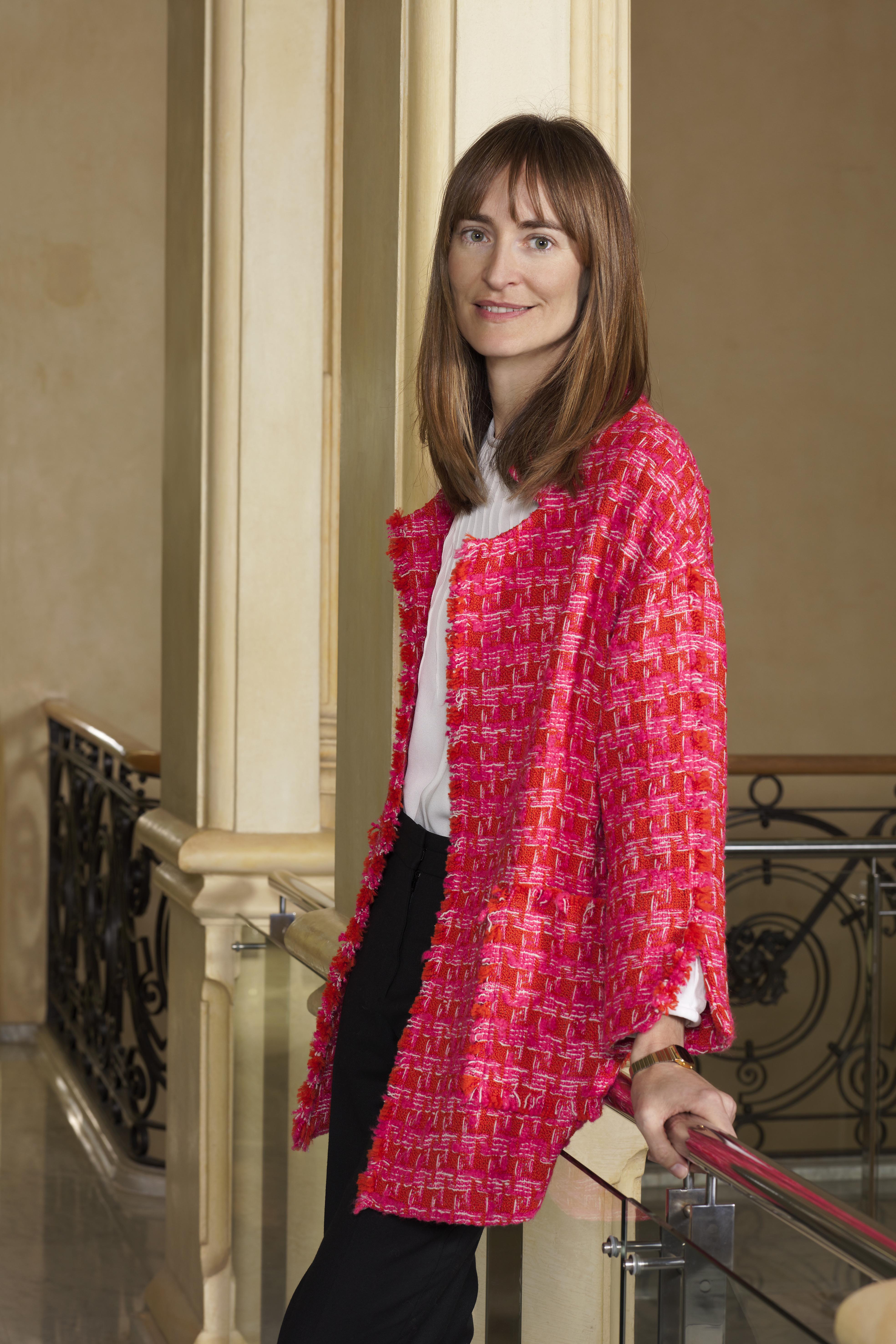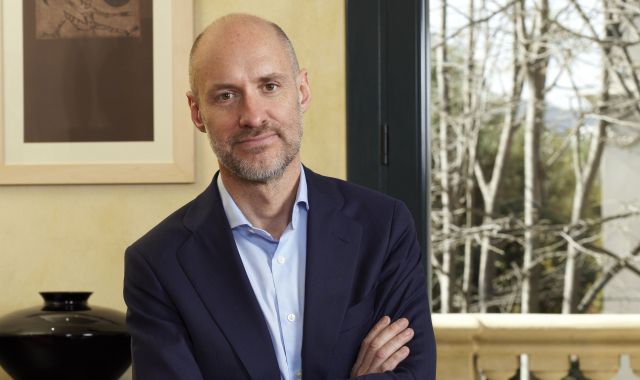
A few months ago, the scientific community set about researching treatments, diagnostic tests, and a vaccine to fight coronavirus. The pandemic is conquering one country after another, while those first affected, China and South Korea, are beginning to recover. At the same time, research centres, hospitals, and pharmaceutical companies race to be the first to halt the spread of the disease. The most advanced study among the efforts to stop the contagion is led by doctor Oriol Mitjà - the specialist in infectious diseases at the Germans Trias i Pujol Hospital in Badalona. Behind that, are the Gebro Pharma laboratories, which bring to the table knowledge of antiviral drugs as well as a good deal of the funding for the project. Emma Gasol is the director of corporate development, licences and innovation, while Sergi Aulinas is the director-general of pharmaceutics. VIA Empresa spoke to both remotely to analyse the reaction of the sector to the Covid-19 crisis, the management of research into the pandemic, the level of public-private cooperation, and which lines of research are being followed.
Is beginning to look for a solution for a disease that is not well known possible?
Emma Gasol: Yes, beginning with existing knowledge, as in the case of our clinical study. It draws on examples of prophylactic treatments, such as for malaria. Lessons are learnt from these previous experiences. It's sometimes hard to predict when something will be useful. We've found that there are many in vitro studies of different molecules that have been tested for antiviral activity that are now useful to us. It had already been described, for example, how hydroxychloroquine [the medicine used in the study] showed antiviral activity, but not whether it would work on coronavirus. There were already people working on coronavirus… it's been described for some time. Previous knowledge has been generated that has now helped us to react quickly to this situation.
How long might it be before the treatment is ready to use?
EG: Doing in vitro studies is relatively quick. The research requires time; we won't have a treatment one day for the next. We are now testing two things: whether in positive patients the treatment can reduce the seriousness and length of the pathology, and whether it avoids those having contact with coronavirus cases from developing the disease. If we see a significant reduction in the number of infections or in the seriousness of the disease, the experience can be passed to other autonomous communities and patients straight away.
Speed is key in urgent cases like that of Covid-19. What has the reaction of the pharmaceutical industry been like?
Sergi Aulinas: Our purpose is to try to find solutions to unresolved illnesses. The response, both in Spain and Europe, has been companies offering their full backing to research. The response has been unanimous. They are emergency situations and we have to show that we can do things more quickly than ever. It's a chance for society to see the reason for our existence: providing therapeutic solutions for unresolved illnesses.
EG: Everyone is contributing to ensure that no administrative barriers prevent this from being put into effect at a time when it is needed most, which is right now. The Spanish Agency of Medicines and Medical Products has provided consent from the ethical testing committees quicker than is usual.
Sergi Aulinas: "There are things that usually take more time that are being speeded up due to the severity of Covid-19"
Is it possible to speed up the bureaucracy in a sector that is so heavily regulated?
SA: There are things that usually take more time that are being speeded up due to the severity of Covid-19. The cooperation with the agency, the ministry and the departments of the autonomous communities normally work, but at times we think that they could be quicker. We're now seeing that everyone is doing their bit so that everything goes much more quickly. It's the same as always but speeded up. I find it particularly satisfying to see that everyone is making an extra effort.
Is there also public-private cooperation in the funding?
SA: Specific European aid is opening up, but in our case we have made contributions from our budgets for the first initiatives. Getting public funds takes longer, and they are used above all in wide-ranging projects that companies cannot fully fund. So, we have channelled money from other areas into this, which is more of a priority.
EG: The public part comes from the European Union and in our study we're working with the Catalan Health Institute and the Health Department. There is a joint public-private effort to help alleviate this problem a little.

Sergi Aulinas, director-general of the Gebro Pharma laboratories | Ceded
What sort of budget does a study like this have?
SA: We prefer not to give a figure because it's still not over, there are things that still need defining. We will without a doubt make more commitments: we have given support to the Oriol Mitjà study, but there are also other initiatives we're evaluating.
EG: It must be remembered that we're talking about treating 3,000 people. That needs a very well prepared health team, specific nurses, people who manage the gathering of data, medication, data analysis, the administrative part of consent... logistically, we have patients in different hospitals, while some are at home. It's a logistical and human infrastructure that is complex and it is worthy of merit that it's been organised in record time.
How is the international scientific ecosystem coordinated in urgent situations like this one?
EG: There have been different funding calls for research into coronavirus: the European Union made an express call at the end of January and another at the beginning of March. The Bill and Melinda Gates Foundation has also provided funds, and the pharmaceutical companies, especially those with experience in these areas, have responded. There is a website, clinicaltrials.gov, which lists all the clinical studies underway. If you search for coronavirus you'll see that all the studies started in a short space of time. And that's only the ones that are already testing because there are many more of them at a preclinical stage.
Emma Gasol: "The number of initiatives underway to find a solution to Covid-19 is staggering"
Apart from the public-private sphere, is cooperation also happening between companies?
EG: Sometimes the pharmaceutical industry gets this type of criticism, but the capacity of reaction in moments like this shows the value of the scientific research done by these companies, and that it's a sector that's well accustomed to working in collaboration. Farmaindustria [the sector's association] asked us the other day if we could share with them the projects we're working on. They have everything centralised and the number of initiatives underway is staggering.
What lines of research are you working on?
EG: The first is with products that are already on the market and that could be useful to treat this new disease. China is ahead of us on this because that's where the crisis began, but we can also rely on their experience. The second line of action is finding a vaccine to immunise the body so that the disease does not develop even when it comes into contact with the virus. That needs time that with this epidemic we do not have, so it is a long-term solution. The third is developing new treatments to stop the disease getting worse in patients who already have it. Finally, there is diagnosis. The current tests come with certain costs and logistics that mean it's not possible to carry them out widely, so the idea is to develop tests that are more accessible and quicker.
Which companies are working on each of these lines of research?
EG: The study we're working on is an example of the first line of research, with existing products. Behind the development of a vaccine are large laboratories with great experience in this area, such as Sanofi and Janssen. Gilead is working on a new medicine called Remdesivir, which is in an experimental phase. And Qiagen's Catalan subsidiary, STAT-Dx, has developed a test that detects the virus in a short space of time.
What is the role of R&D in these situations?
SA: We're in an emergency situation and it's clearly an opportunity to show what we can do: researchers, health professionals, but also as a sector and in all R&D activities. Behind the treatments are private companies that work with public centres. There are a lot of us who are thinking about what we can do to work with scientists and researchers within and without in order to move forward on this issue.
Emma Gasol: "These days it's very difficult to find all the knowledge about an issue in one place, that's why we work with researchers in a network"
EG: Today, there are people who are experts in very specific areas spread all over the world. That's why we work in a network. It's not the case that we have a huge laboratory with a lot of people working on R&D, rather when there is a specific project the researchers who can work best on this research are chosen in the network. These days it's very difficult to find all the knowledge about an issue in one place.
Can you work normally under a state of alarm?
SA: The system of production is not at 100% in any sector, and the pharmaceutical sector is also affected. We've adapted, adopting the recommendations to work from home whenever possible, to reduce events with groups of people to a minimum... In general, there are issues of logistics and demand that due to the coronavirus are taking longer or becoming more complicated, but we're trying to supply medicines to pharmacies and hospitals as normal, as the whole sector is doing. But yes, there are difficulties: not all the factories can continue producing, there can be coronavirus cases among the workforce... what's happening everywhere.
Will this situation go on for a long time?
EG: The aim of our study is to flatten the curve in order to desaturate health centres with the most serious patients and, above, all cut off the path of transmission. It's proving a little harder for us than for China, but we're still at the beginning. If everyone is responsible, we hope that the situation will be over sooner rather than later.